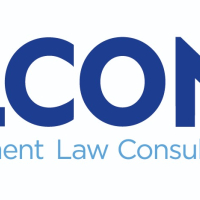Business Visitor Visas to the UK - Still Fifty Shades of Grey?
Business visitor visas – still fifty shades of grey?
By Natasha Hotson of Lewis Silkin LLP [email protected]
Recently the UK government set out to simplify the visitor immigration routes. Although visiting the UK has become a quicker and smoother process for many applicants, the legislation and accompanying guidance do not always envisage global working patterns.
Easy come, easy go
Not everyone needs a visa for short term visits to the UK. Non visa nationals, i.e. those who are not on the Home office visa nationals list, including Japanese, Hong Kong, US and Australian nationals, simply need to present their passports to the Immigration Officer and get stamped into the UK as business visitors. Visa nationals such as Chinese, Indian and Russian nationals must apply for business visitor visas in advance of entering the UK. Non visa nationals are more likely to encounter questions from immigration officers on arrival as to the purpose of their trip but for anyone entering the UK it is a matter of credibility and an Immigration officer has to be satisfied at the point of entry.
If an immigration officer infers that an individual is working in the UK rather than coming for a reason permitted under the Immigration Rules for business visitors, or that they do not intend to depart the UK following their trip, the person can be sent home and banned from re-entering the UK for up to ten years. The individual’s employer may also be penalised under the Prevention of Illegal Working legislation if it transpires that a business visitor has been working in the UK or has not been carrying out a “permissible” activity. It is, therefore, crucial that companies are aware of any non EEA nationals coming into the UK and their proposed activities.
Business or work?
Work and business may go hand in hand but they form two separate immigration categories and it is still difficult for businesses to determine whether an individual may enter the UK as a business visitor or if they require work permission under Tier 2 of the Points Based System. Getting this wrong can be extremely costly.
It is not the length of the trip or the fact that the individual will remain employed overseas for the duration of their stay but the nature of the activities they will carry out whilst physically based in the UK that is key to deciding between work permission or entry as a business visitor.
In general activities may be related to the individual’s job overseas but they must remain employed and paid overseas and must not carry out paid or unpaid work in the UK.
If the person will be carrying out activities that constitute work they must obtain a Tier 2 visa. UK companies need to obtain sponsor licences from the UK government to hire individuals under Tier 2 and in doing so, are signing up for a number of compliance obligations, including the likelihood of the Home Office making unannounced visits to their premises.
Tier 2 workers are subject to a cooling off period unless an exemption applies, which means that they cannot enter the UK under Tier 2 until 12 months after they have left the UK or 12 months after the end of their Tier 2 visa. This also raises reporting obligations for the employer.
Previously many individuals obtained Tier 1 (General) visas which allowed them to undertake work for any employer or to be self-employed. This scheme, however, was closed to new applicants in December 2010 as part of the UK government objective to reduce net migration to the UK. The Tier 2 system allows for individuals to be self-employed but only in certain circumstances and they still need to be sponsored by a company with a sponsor licence.
What business visitors are allowed to do
Business visitors can do a number of things one would normally expect: attend pre-arranged meetings, conferences or interviews, visit client sites, negotiate contracts and arrange deals. The category also allows a number of other activities, for example, business visitors may carry out “fact finding missions” and act as an adviser, troubleshooter or trainer.
They may also be seconded to UK companies directly contracted with their overseas company and act as representatives of foreign manufacturers.
A number of caveats are embedded in the Rules and guidance.
Those acting as adviser, troubleshooters or trainers may only do so if they are providing these services to the same group of companies as their overseas company and they must remain employed and paid by the overseas company. A self-employed person is not covered and the UK company would have to sponsor them under Tier 2, an onerous process particularly if the company needs to obtain a sponsor licence.
A representative of a foreign machine manufacturer can be briefed on the requirements of a UK customer, but they are not permitted to make a detailed assessment of a potential customer's requirements. In theory they would have to come to the UK to take notes and then return overseas to draft their report.
Global working patterns characterised by the growing importance of temporary and self employment, the adoption of a variety of flexible working practices, technological advances and economic globalisation have radically altered the ways businesses operate.
Employees are increasingly managed from overseas and are required to travel frequently and at short notice. A manager coming to the UK for one day to carry out their management duties, for example, staff appraisals, technically and legally needs a Tier 2 visa and is subject to the cooling off period unless they are exempt.
Impact of recent changes
An Immigration Rule change of October 2013 permitted internal auditors to come to the UK under the business visitor route and a further change effective from 6 November 2014 allowed lawyers from international law firms with offices in the UK to come to the UK to advise clients. In the past such individuals would have needed to obtain Tier 2 visas to come to the UK regardless of the length of their visit.
The process for obtaining UK business visas is now easier for applicants from many countries. The Electronic Visa Waiver Program was implemented on 1 January 2014 for nationals of the United Arab Emirates, Oman and Qatar and a large number of jurisdictions now process visitor visa applications on priority and offer appointments outside office hours.
The effect is to broaden the business visitor category and streamline the visa application process but the legislation is not flexible enough in view of global working trends, the removal of Tier 1 (General) for self-employed individuals and the sponsorship obligations and cooling off period under the Tier 2 work permission route.
Industry experts and immigration lawyers continue to lobby the government to allow business visitors to work for short periods of time but such a measure is unlikely before the General Election of May 2015.
Fifty shades of grey? Arguably there are more.
Lewis Silkin LLP has market leading practices in employment & immigration and brands & intellectual property, with outstanding knowledge of the marcomms, media & technology sectors.
Labour’s new Employment Rights Bill: challenges employers...
More Articles
The Value of a Sustainability Strategy in the Tender Process
Unlocking the Power of Raw Financial Data
Would you like to promote an article ?
Post articles and opinions on Professionals UK
to attract new clients and referrals. Feature in newsletters.
Join for free today and upload your articles for new contacts to read and enquire further.







